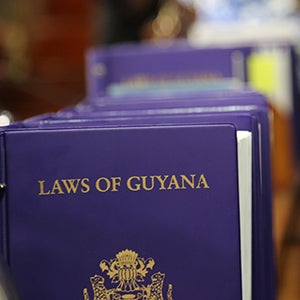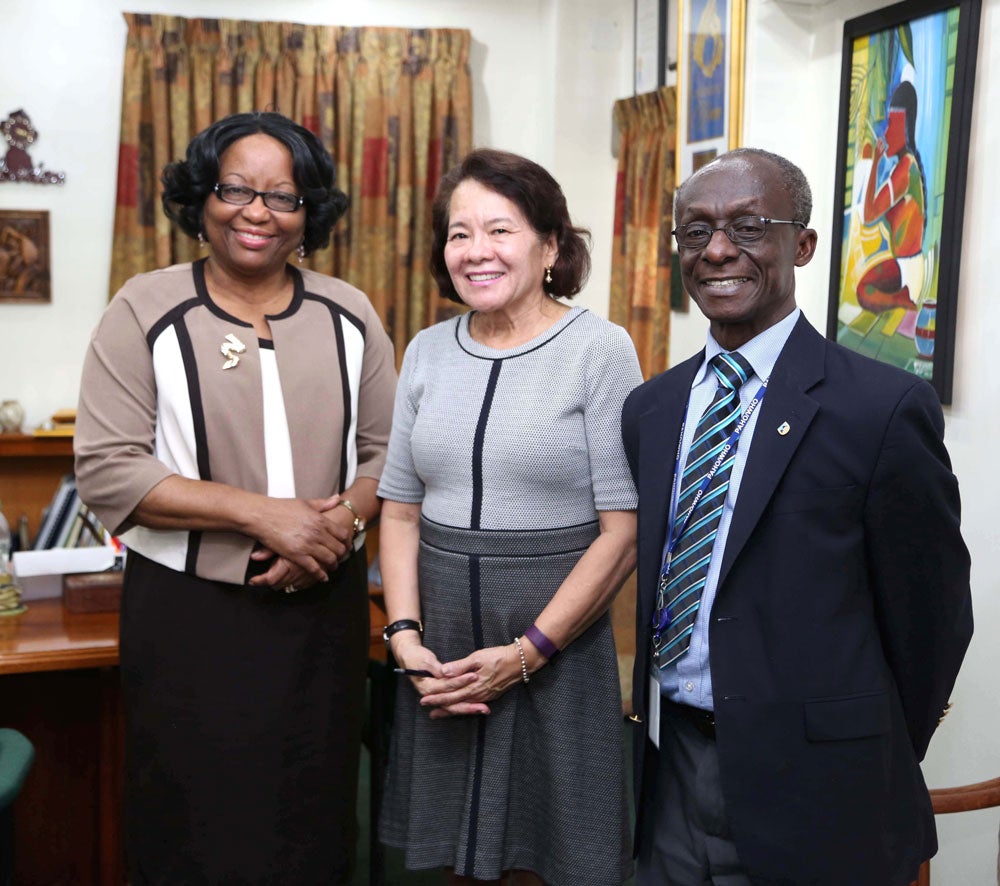

Tobacco control legislation is critical to reduce diseases that are the leading causes of death in Guyana, said the Director of the Pan American Health Organization (PAHO) during an official visit to the country this week.
Seven in 10 deaths in Guyana are from noncommunicable diseases, whose leading risk factor is tobacco consumption and exposure to secondhand smoke. PAHO's Director expressed support for a national tobacco control bill aligned with WHO recommendations.
Georgetown, Guyana, 7 February 2017 (PAHO/WHO) - Tobacco control legislation is critical to reduce diseases that are the leading causes of death in Guyana, said the Director of the Pan American Health Organization (PAHO) during an official visit to the country this week.
Noncommunicable diseases (NCDs)-including heart disease, cancer, and diabetes-account for 70% of deaths in Guyana, and one-third of these deaths are premature (in people under age 70).
"Tobacco, excessive alcohol use, unhealthy diet and physical inactivity are the main risk factors underlying this epidemic," said Etienne. She called for "working together with different sectors of society and among different government ministries to reduce the burden of these diseases and save lives."
Etienne said tobacco control is a good place to start to step up action against NCDs, since tobacco is overall the leading risk factor for these diseases. "We believe that tobacco taxes should be increased, tobacco packaging should feature strong warnings, and people should be protected from secondhand smoke," she said. All these measures are recommended in the World Health Organization's (WHO) Framework Convention on Tobacco Control, which Guyana signed in 2005.
Etienne, who also serves as WHO Regional Director for the Americas, pointed out that tobacco has a negative impact not only on people's health but also on countries' economies. She said supporters of tobacco control legislation must be on their guard against interference from the tobacco industry, which regularly tries to undermine regulatory efforts in developing countries.
PAHO has been supporting Guyana in recent years to develop a draft national tobacco control bill. Following a series of consultations on the law, Prime Minister Moses Nagamootoo recently announced his government's intention to submit the proposed legislation to Parliament in the near term.
Also during her official visit to Guyana this week, Etienne signed a new PAHO-Guyana cooperation strategy with Minister of Public Health Volda Lawrence. One of the strategy's main goals is to reduce the burden of NCDs. "PAHO's technical cooperation will help us reduce illness and deaths" from these diseases to "ensure that all Guyanese enjoy a healthier life" by 2020, Lawrence said.
In a meeting with Guyana's Speaker of Parliament, Barton Scotland, and another with members of the Social Services Committee, Etienne welcomed the reconstitution and re-launch of Guyana's National Commission on Noncommunicable Diseases, an intersectoral mechanism that will guide and monitor the implementation of the country's strategy for prevention and control of NCDs through 2020.
In addition, Etienne met with Finance Minister Winston Jordan to discuss strategies for increasing health financing to move Guyana towards universal health. She also met with Deputy Secretary General of the Caribbean Community (CARICOM) Douglas Slater.
Meeting with Guyana's First Lady
Etienne also met during her visit with First Lady Sandra Granger of Guyana, with whom she reviewed the health situation of women and girls in the country. The First Lady said her priorities in health include reducing adolescent pregnancy, cervical cancer, domestic violence and mother-to-child transmission of HIV. Granger highlighted her involvement, and that of other first ladies, in the CARICOM and Clinton Global Initiative's "Every Caribbean Woman, Every Caribbean Child" initiative and her interest in "promoting holistic policies in the region to improve the health of women and children."

PAHO/WHO has a long history of technical cooperation with Guyana, dating back to before the country gained its independence in 1966. PAHO Representative in Guyana William Adu-Krow and Chief of Staff Merle Lewis accompanied Etienne during her official visit this week.



